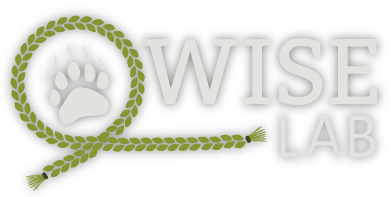Weaving ways of knowing ‘in a good way’
In the face of unprecedented environmental change, interdisciplinary and culturally-inclusive research that embraces diverse epistemologies is essential for the preservation of biodiversity and cultural heritage. A significant challenge in harmonizing Indigenous and Western knowledge systems for both Indigenous environmental stewards and Western scientists is the prevailing uncertainty regarding effective best practices. The WISE Lab addresses this challenge through a series of targeted research initiatives, and through prioritizing the weaving of knowledge systems 'in a good way' throughout our endeavors. We draw upon the knowledge and insights provided by our Indigenous collaborators, as well as the lessons learned from our experiences, to enhance and effectively showcase our work in the spirit of reconciliation.
Reid, A, McGregor, D, Menzies, A, Eckert, L, Febria, C, and Popp, J. 2024. Ecological research in a good way means ethical and equitable relationships with Indigenous Peoples and Lands. Nature Ecology & Evolution. https://doi.org/10.1038/s41559-023-02309-0


